Beatles - Revolver
by Nick Dent-Robinson
published: 26 / 11 / 2022
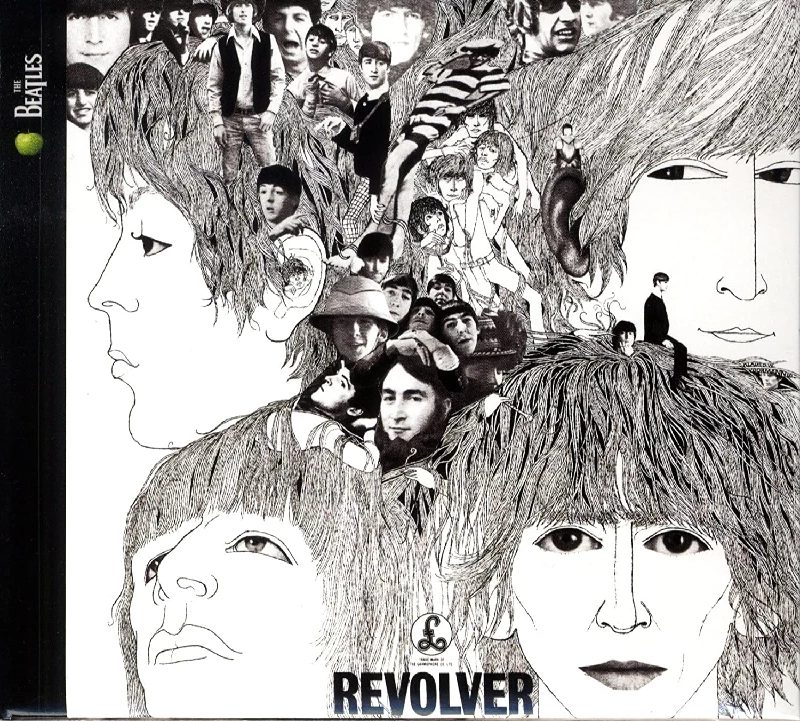
Label:
Select Label
Format: N/A
intro
Nick Dent-Robinson examines The Beatles' influential 1966 album 'Revolver', which has recently been re-released in a newly mixed version.
‘Revolver’ is the latest Beatles album to get the deluxe reissue and remix treatment. And, just as with the special editions of ‘Sgt. Pepper’, ‘The White Album’, ‘Abbey Road’ and ‘Let It Be’, curator Giles Martin, son of original Beatles producer George, has done a superb job. Back in the Summer of 1966, The Beatles were at a turning point. They had decided to stop touring after one last sell-out concert at London's Empire Pool and had shelved plans to shoot another film. From now on, they decided the recording studio would be the principal creative outlet for the band. They took a four-month break and then, refreshed and full of enthusiasm, they rapidly produced a new album, ‘Revolver’, that many contemporary critics felt changed the face of pop. Building on 1965's ‘Rubber Soul’ - which had been quite innovative, introducing new instruments like the sitar and harmonium – ‘Revolver’ took things several leaps further. It combined tightly-knit songs with bold experimental sounds and kaleidoscopic arrangements. It had an interesting and avant-garde cover, too – designed by Klaus Voormann, a friend of the Beatles since their early-60s Hamburg days. It was a revolutionary album at the time and it is certainly worthy of Giles Martin's meticulous 2022 revamp. The sound is now richer, warmer and somehow more immediate. Yet, crucially, the songs remain the same with none of George Martin's brilliant original arrangements tampered with. The album was originally recorded on four-track tape (state of the art in 1966) – and it is only with the very latest 21st Century recording studio technology that any kind of remix has been possible. But by using similar methodology to that employed by filmmaker Peter Jackson on last year's ‘Get Back’ documentary, Giles Martin and his engineers have been able to painstakingly break down each of ‘Revolver's’ tracks and rebuild the songs with even greater clarity and definition. This brings the music closer to the listener than ever before. And what fine material this is. Side One of the original vinyl LP featured ‘Taxman’, ‘Eleanor Rigby’, ‘Yellow Submarine’ and ‘Here, There And Everywhere’ amongst its seven tracks - surely one of the best halves of an album ever released in pop music? Also on Side One were some hugely inventive contributions from George Harrison, who was by now recognised for the creative genius he actually was, notably his sitar playing on ‘Love You To’ and backwards guitar work on ‘I'm Only Sleeping’. Side Two is almost as impressive, the four Beatles in perfect harmony on ‘Good Day Sunshine’ (led by McCartney) and John Lennon's ‘Tomorrow Never Knows’, with its tape loops and Ringo's thunderous drums. By now The Beatles had really redefined what was possible in a three-minute pop song! Like the previously reissued Beatles albums, the expanded editions of Revolver’ come with extras, including two discs of unheard demos, rehearsal fragments and alternate takes. Not everyone will wish to have four versions of some tracks but the bonus material does shine a revealing light on the creative process. Surprisingly, early versions of ‘Yellow Submarine’ reveal this popular number actually began as a sad, acoustic lament sung by John Lennon: “In the town where I was born, no-one cared, no-one cared”, before McCartney transformed the idea into a cheery upbeat children's singalong with novelty sound effects - the version we all know today. At this stage in The Beatles' development, there was little sign of the personal differences that would later spell the end of the group, and all the musical debate seems good-hearted. The banter is fascinating: Lennon jokes around on an early version of ‘Got To Get You Into My Life’, while McCartney and George Martin discuss earnestly whether to put vibrato on the strings in ‘Eleanor Rigby’. Martin's suggestion not to do this was eventually accepted. Ultimately, though, the true test of ‘Revolver’ was always the sheer quality of so many of the songs. Listening again to the album, there is no surprise it had such a major and lasting impact in the music industry. The fact it has now been brought back to life and revitalised in such a vibrant way will bring joy to many over the coming months.
Track Listing:-
Play in YouTube:-
Have a Listen:-
Picture Gallery:-
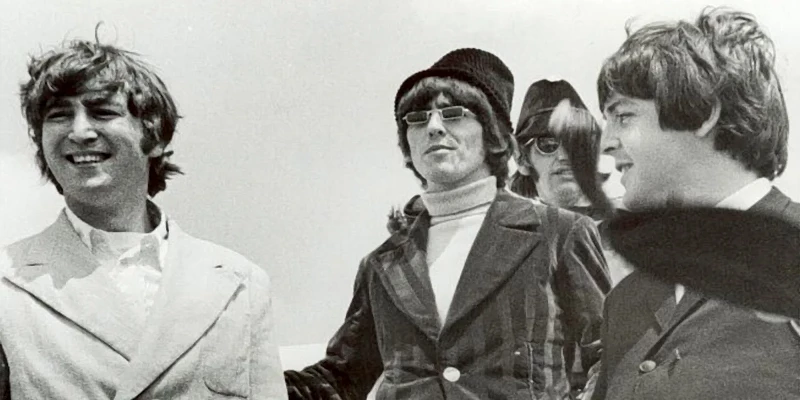
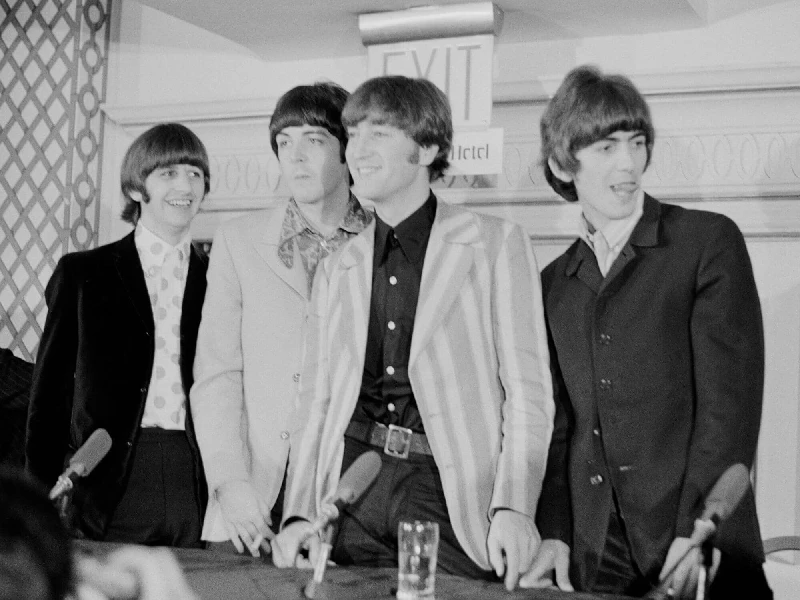
profiles |
|
Now and Then (2023) |
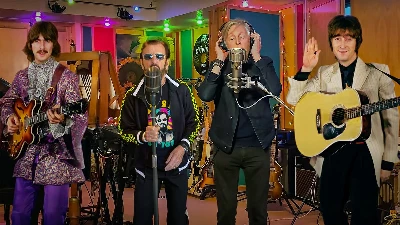
|
| Nick Dent-Robinson reflects upon the Beatles' much anticipated new single, 'Now and Then'. |
| In Romford (2022) |
| Get Back (2021) |
| Get Back (2021) |
| It Was Fifty Years Ago Today! The Beatles: Sgt. Pepper and Beyond (2017) |
| Interview (2015) |
| 1939-2015 (2015) |
| A Personal Tribute (2015) |
| Interview (2015) |
| If You Like the Beatles...Here are Over 200 Bands, Films, Records and Oth (2012) |
| Yeah, Yeah, Yeah: The Beatles and Bournemouth (2011) |
| Hyatt Regency O’Hare, Rosemont, Illinois (2010) |
| Beatles Part 2 (2010) |
| Beatles Part 1 (2009) |
| Label Features (2007) |
favourite album |
|
Red 1962-1966 and Blue 1967-1970 (2023) |
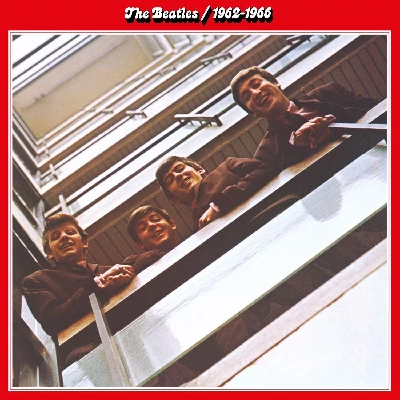
|
| Nick Dent-Robinson looks at The Beatles’ classic greatest hits Red and Blue albums which have just been reissued for their 50th Anniversary in expanded and remastered deluxe editions. |
features |
|
1963 (2022) |
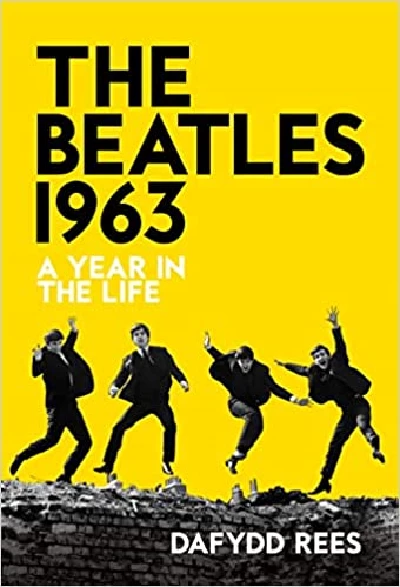
|
| In 'Raging Pages' guest reviewer Eoghan Lyng contends that author Dafydd Rees ‘apes the lexicon of the era’ when focusing on the Beatles history in his new book ' The Beatles 1963: A Year in the Life'. |
| The Image That Made Me Weep (2021) |
reviews |
|
Love (2006) |
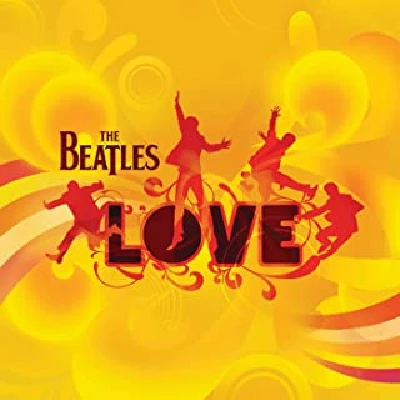
|
| Excellent remixed and reworked collection of Beatles classics by their fromer producer George Martin and his son |
most viewed articles
current edition
Screamin' Cheetah Wheelies - Sala Apolo, Barcelona, 29/11/2023 and La Paqui, Madrid, 30/11/2023Anthony Phillips - Interview
Difford and Tilbrook - Difford and Tilbrook
Rain Parade - Interview
Oldfield Youth Club - Interview
Autumn 1904 - Interview
Shaw's Trailer Park - Interview
Cafe No. 9, Sheffield and Grass Roots Venues - Comment
Pete Berwick - ‘Too Wild to Tame’: The story of the Boyzz:
Chris Hludzik - Vinyl Stories
previous editions
Microdisney - The Clock Comes Down the StairsHeavenly - P.U.N.K. Girl EP
World Party - Interview
Michael Lindsay Hogg - Interview
Ain't That Always The Way - Alan Horne After The Sound of Young Scotland 2
Joy Division - The Image That Made Me Weep
Dwina Gibb - Interview
World Party - Interview with Karl Wallinger
Joy Division - The Image That Made Me Weep
Barrie Barlow - Interview
most viewed reviews
current edition
Marika Hackman - Big SighSerious Sam Barrett - A Drop of the Morning Dew
Rod Stewart and Jools Holland - Swing Fever
Loves - True Love: The Most of The Loves
Ian M Bailey - We Live in Strange Times
Paul McCartney and Wings - Band on the Run
Autumn 1904 - Tales of Innocence
Banter - Heroes
Roberta Flack - Lost Takes
Posey Hill - No Clear Place to Fall
related articles |
|
: Interview (2023 |
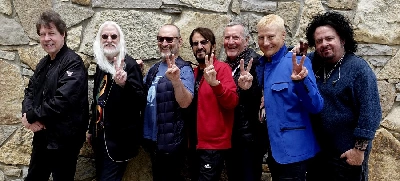
|
| Lisa Torem finds that a press event held during a rehearsal break reveals the true spirit of the All-Starr Band, helmed by iconic drummer/singer-songwriter Ringo Starr, prior to their 2023 US tour. |
| : Favoutite Album (2021) |
| George Martin: Feature (2019) |
| Bootleg Beatles: Interview (2019) |
| Liverpool Legends: Favoutite Album (2015) |
| Cynthia Lennon: Profile (2015) |
| Cynthia Lennon: Profile (2015) |
| Cynthia Lennon: Profile (2015) |
| Louise Harrison: Profile (2015) |
| George Harrison: Interview (2015) |
Pennyblackmusic Regular Contributors
Adrian Janes
Amanda J. Window
Andrew Twambley
Anthony Dhanendran
Benjamin Howarth
Cila Warncke
Daniel Cressey
Darren Aston
Dastardly
Dave Goodwin
Denzil Watson
Dominic B. Simpson
Eoghan Lyng
Fiona Hutchings
Harry Sherriff
Helen Tipping
Jamie Rowland
John Clarkson
Julie Cruickshank
Kimberly Bright
Lisa Torem
Maarten Schiethart